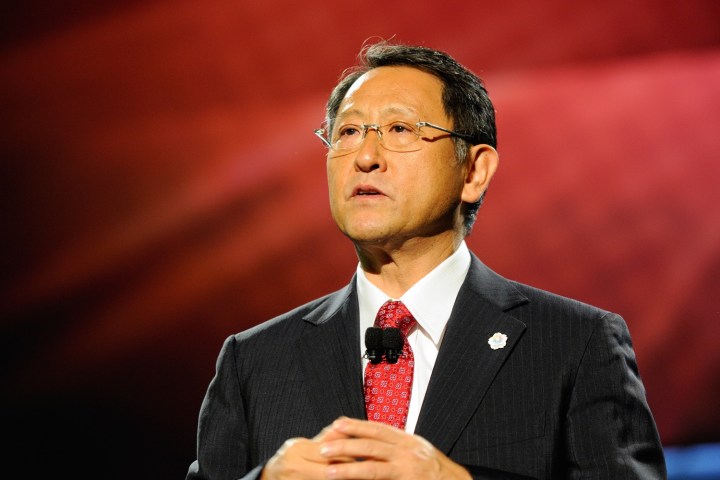
CEO Akio Toyoda — who is also the grandson of company founder Kiichiro Toyoda — will personally lead the electric car team, a Toyota spokesperson told Reuters earlier this week. Toyoda’s involvement is meant to speed up the development process of the company’s first mass-market electric car, the spokesperson said.
While his company has spent the past few years concentrating on hydrogen fuel cell cars, Toyoda is not a complete electric car newbie. He engineered a 2010 deal with Tesla that saw the Silicon Valley automaker purchase a Toyota-owned factory in Fremont, California, which became Tesla’s sole assembly plant. Toyota also invested in Tesla, while the smaller automaker developed an electric powertrain for the Toyota RAV4 EV, a limited-production electric SUV built to satisfy California’s zero-emission vehicle mandate. The two companies have since parted ways.
Toyoda will oversee a newly formed team of engineers. That Toyota is just assembling the team now indicates the decision to build a mass-market electric car was made relatively recently. That decision may have been made in response to low sales of the Toyota Mirai hydrogen fuel-cell car, and a slower-than-expected ramp up of hydrogen fueling infrastructure.
On the flip side, Toyota has grown more confident in the lithium-ion batteries that are an essential ingredient of modern electric cars. Recent statements by engineers indicate that Toyota feels it now has enough experience with lithium-ion batteries to use them in an electric car.
Reports so far indicate Toyota is aiming to debut its electric car in 2020, in time for the Tokyo Olympics. The vehicle may turn out to be a small SUV, and could use the same Toyota New Global Architecture (TNGA) platform as the Prius hybrid and 2018 C-HR.
Editors' Recommendations
- The Toyota Urban could be the low-cost electric crossover we’ve been waiting for
- VinFast’s new electric cars will be available in the U.S. this year
- 2022 Toyota Tundra hybrid first drive review: New dog, old tricks
- Nissan employs certified smellers to check the odor of its new cars
- Google deploys a Jaguar I-Pace as its first all-electric Street View car


